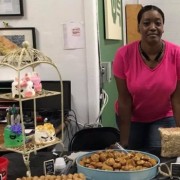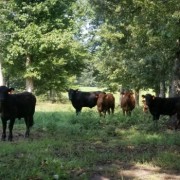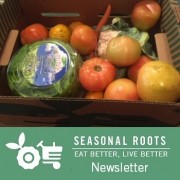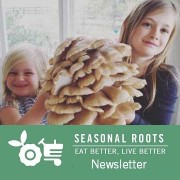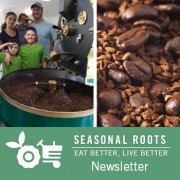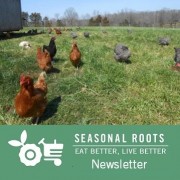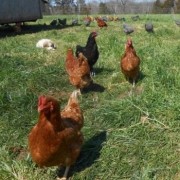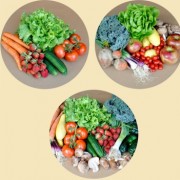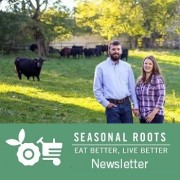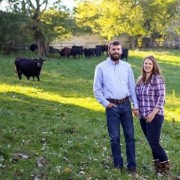Home delivered local food: How it works
Take a tour of the Hub!
– By the Veggie Fairy Team
When we hosted an Open House at our Hub in Richmond, more than a hundred people stopped by check out the place where we pack up your weekly orders. They got to talk about local food, sample it, and peek behind the scenes at how our home delivered local food gets from the farm to you. You can scroll down for a photo tour that shows you how it works! But first…
The Open House
We sure appreciated the farmers who took a break from their chores to come hang out with us! They included Jack from Sion House Farm…
…and Enrique and Cristian from the Flores family farm, G. Flores Produce.
Ralph from Cattle Run Farm was there, too, and brought grassfed beef for the sliders.
Your Farmer Connector, Sam, grilled up the beef, along with grassfed chicken from Harmony Hill Farm.
The smaller ones among us dove into a corn-filled kiddie pool, which hid a whole herd of plastic animals.
Apparently there was a lot of corn splashing going on. After the last cutie crawled out, the corn was donated to Ralph’s pigs, who pronounced it delicious.
Zee of Foster’s Catering is a local food artisan — her muffin tops in our home-delivered farmers market have many, many fans. She’s also a member of the Seasonal Roots team, leading the neighborhood Market Managers on Richmond’s Southside.
For the Open House, Zee baked up 265 mini muffin samples and gave them all away. Quote of the day: “These are so addictive!”
Seconds after this photo was taken of the biggest cake Zee brought, the crowd descended… and this cake was GONE.
Zee also raffled off four mini animal cakes — a pig, a kitty, a cow, and a… dragon?
A couple of the lucky winners!
A lot of members of the Seasonal Roots team were there, too. Jamila, in the middle taking the selfie, is our Veggie Fairy Godmother, the one who helps us veggie fairies on our appointed rounds as we take care of members and support local farmers. Zee is on the far left, and between them is Duane, our founder and Head Veggie Fairy. On the other side of Jamila is Sam, your Farmer Connector who vets each farmer and food artisan and chooses what goes in the market every weekend.
And now for…
The Hub tour
Our local farmers and food artisans deliver their local food to the Hub on Monday. As soon as the food arrives, it goes straight into our two big coolers.
One is kept at 50 degrees for tomatoes, which don’t like to be too cold in order to max out their flavor… as well as hardy vegetables and fruits that don’t need to be too cold, like potatoes, apples, and winter squashes. The other cooler is kept at 41 degrees for greens, berries, and the like.
People who take the tour in person are always amazed at how big the Hub is. You can see the entrance to the coolers on the right, there. Through that door, the refrigerated areas alone add up to 3,500 square feet — bigger than a lot of our houses.
On Tuesday and Wednesday, we set up the conveyor, get out the boxes, pull on our woolen undies, and line up along the conveyor to pack the orders right there in the coolers. Everyone who takes the Hub tour in person says, “Wow, it’s so cold in here!” Especially if they walk in from a hot summer day. But since the food never leaves the cooler until delivery day, it stays cool and fresh until it comes to you.
Okay, so most of us don’t wear woolen undies. Or even own them. But hoodies, wool caps, and scarves, definitely.
Since most of our members customize their basket and order Extras, every order is different. So a packing slip is generated for each order, and we follow that packing slip as we pack each box.
It takes about 12 of us to pack up the orders with 8 others helping.
When the line gets going, a packed box comes off the end of the conveyor every 30 seconds.
At the end we do quality control, checking to make sure that each order has everything it’s supposed to have.
At dawn on delivery day (Wednesday in Northern Virginia, Thursday everywhere else), we load up the boxes in our trucks and head out to the party stops.
That’s where the neighborhood Market Managers in each area meet up to collect their neighbors’ orders.
They load up their personal vehicles with the boxes and place perishable items like meat and dairy in a cooler in their vehicle. When they make their rounds, they take the perishables out of the cooler and add them to your order when they arrive at your place — keeping your food cool, fresh, and safe from the farm to your door!
ABOUT SEASONAL ROOTS
Since 2011, Seasonal Roots’ online farmers market has connected Virginia families with local family farmers who use sustainable, humane practices. Our veggie fairies – mostly moms who believe in living better through scrumptious, healthy eating, being kind to animals, protecting the environment, and spreading joy – home-deliver freshly harvested produce, pastured eggs, grassfed dairy and meat, plus artisan fare. We empower our members to eat better and live better with more nutritious, flavorful food that’s good for us and good for the planet. More info at seasonalroots.com.
